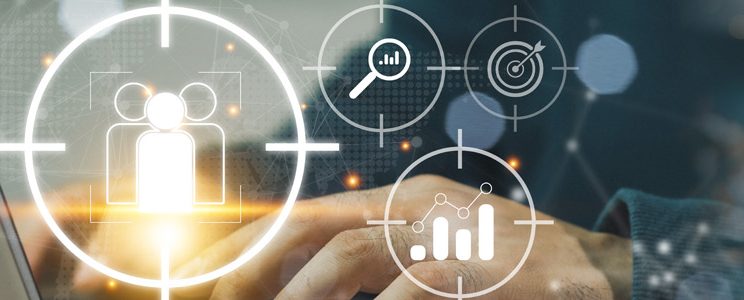Original Release Date: May 27, 2022
In episode four of our Strengthening the Forensic Workforce season, Just Science sat down with Assistant Professor Jessica Zarate and 5th year student Kristen Szabelski at Madonna University in Michigan, as well as Dr. Christine Picard, an Associate Professor and Director of the Forensic and Investigative Sciences Program at Indiana University-Purdue University Indianapolis, or IUPUI, to discuss their hands-on impression and pattern education programs.
Many people will immediately think of fingerprints or bloodstain patterns when mentioning impression and pattern forensics. However, the section is quite diverse and includes the analysis of additional types of evidence such as footwear impressions, firearm toolmarks, and questioned documents. Listen along as Dr. Picard, Professor Zarate, and Kristen Szabelski discuss the importance of research and experiences in impression and pattern education programs from their different perspectives.
This episode of Just Science is funded by the National Institute of Justice’s Forensic Technology Center of Excellence [Award 2016-MU-BX-K110].
View or download the episode transcript here:
Transcript
Guest Biography
Ms. Jessica Zarate, MS is currently an Assistant Professor in the Forensic Science Education Programs Accreditation Commission (FEPAC) accredited undergraduate Forensic Science Program at Madonna University, teaching forensic science coursework to include discipline specific content in the area of impression and pattern evidence. She was a Michigan certified police officer for eight years and is the inventor of the Zar-Pro™ Fluorescent Lifters. She is a National Institute of Justice (NIJ) funded researcher and has collaborated on research grants with the Forensic Research Outdoor Station (FROST) and outdoor forensic taphonomy research facility at Northern Michigan University, Michigan State Police Forensic Science Division, Oakland County Sherriff’s Department Forensic Science Laboratory, and the Wayne County Medical Examiner’s Office. Her research primarily focused within the impression discipline, publishing on a fluorogenic method for lifting, enhancing, and preserving bloody and other proteinaceous impression evidence, recovering bloody impressions from difficult substrates, including from human skin, defining methods to create consistent and reproducible fingerprint impressions, and most recently the recovery of blood impressions and semen smears from decedent skin during the early stages of decomposition. She is the Vice President of Missing in Michigan Association and is a cold case homicide consultant overseeing a team of student-investigators at the Madonna University Forensic Science Research Facility.
Kristen Szabelski is a 5th year student enrolled in the Forensic Science Education Programs Accreditation Commission (FEPAC) accredited undergraduate Forensic Science program at Madonna University located in Livonia, Michigan. She is majoring in forensic science with minors in biology and chemistry, in addition she will receive four certificates in pre-medicine, crime scene practice, crime laboratory technician, and DNA analysis. Kristen is a paid student researcher funded under the Future-Focus Workforce Initiative as part of the National Institute of Justice Grant (2019-R2-CX-0070) titled, Methods to Enhance and Preserve Proteinaceous Impressions from the Skin of Decedents during the Early Stages of Decomposition while Examining Environmental Variations across Seasons supervised by project Principal Investigator and Madonna University Faculty member, Jessica Zarate. Kristen co-presented research from this NIJ funded project at the 2021 International Association for Identification (IAI) Educational Conference in Nashville, Tennessee, earning her first place in the student poster contest. She is also a Laboratory Assistant for the Introductory Principles of Forensic Science and Impressions and Trace Evidence Analysis courses. Kristen has also volunteered at the Missing in Michigan Associations Annual Missing Persons Day and with the exhumation of human remains for the Detroit Police Department’s Operation United. Additionally, Kristen is a student-athlete, golfing on the Madonna University women’s golf team. In May 2022, Kristen will graduate from Madonna University and plans to work in a Latent Print Unit associated with a Forensic Science Laboratory.
Dr. Christine Picard got her Bachelor of Science degree from the University of New Brunswick (2000), and her Master of Science degree from the University of Toronto (2002). Following graduation, she worked for a small startup pharmaceutical company as a medicinal chemist before returning to graduate school and earning her PhD from West Virginia University (2010) in Biology. Following her postdoc at Texas A&M University (Entomology), she became an Assistant Professor in the Department of Biology at Indiana University Purdue University Indianapolis (IUPUI) and is currently an Associate Professor in the Department of Biology and Director of the FEPAC-accredited Forensic and Investigative Sciences Program at IUPUI. Her research is focused on insect genotype-phenotype correlations, predominantly focused on forensic species (Calliphoridae), but has done some work in black soldier fly and mealworm genetics and genomics.
The opinions, findings, and conclusions or recommendations expressed in this podcast episode are those of the presenter(s) and do not necessarily reflect those of the U.S. Department of Justice.
Contact us at ForensicCOE@rti.org with any questions and subscribe to our newsletter for notifications.




